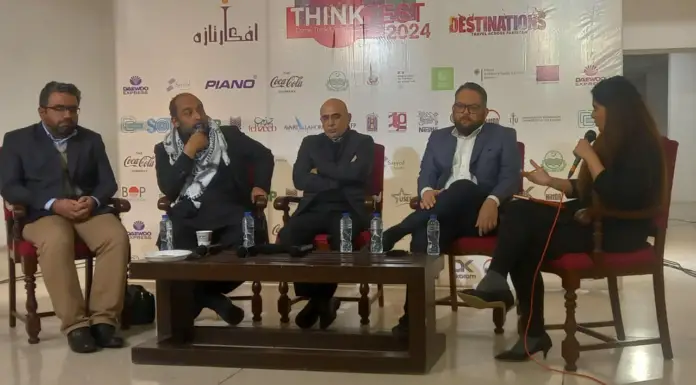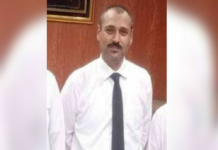The Afkar-e-Taza Thinkfest 2024 hosted a compelling session titled “Resurgence of Terrorism: Threat to Democracy,” featuring a diverse panel of experts who delved into the alarming rise of terrorism and its potential impact on democratic institutions.
The five-member panel included Mr. Iftikhar Firdous, founding editor of ‘The Khorasan Diary’; Mr. Majid Siddique Nizami, Senior Producer at GEO News; Mr. Mussaraf Zaidi, writer and founding partner at Tabadlab; Ms. Kiran Butt, journalist, and Lt. Gen. (R) Waheed Arshad, former CGS.
Iftikhar Firdous initiated the discussion by shedding light on the intricate dynamics between Tehreek-e-Taliban Afghanistan (TTA) and Tehreek-e-Taliban Pakistan (TTP).
He argued that since 2019, a new wave of terrorism emerged, emphasizing the shift of these organizations from traditional black or white areas to grey areas, operating on the subliminal law of acceptability. Firdous suggested that the resurgence could be attributed to a strategic and political choice, with the mainstreaming of terrorism and militancy narratives.
Firdous explained, “The year 2019 marked a turning point when the US engaged with the Taliban. Suddenly, there was an op-ed of Siraj ud din Haqani published in the New York Times. The influence of the Afghan Taliban on the Pakistani Taliban cannot be ignored due to the religious hierarchy of decision-makers. The ‘baya system’ and ‘bait system’ form the basis of their ideologies, where breaking the bait allows for jihad against the defector.”
Highlighting the correlation between political discord and terrorism, Firdous stressed, “The more political discord our state faces, the more there will be a surge in terrorism.” He called for collaborative efforts among decision-makers and politicians to find comprehensive solutions.
Majid Nizami contributed to the discussion by noting the difference between militancy in Punjab and Khyber Pakhtunkhwa (KP). He observed, “Punjab militants seem pro-state,” attributing the decreased support for TTP in the past five years to various factors. Nizami highlighted that Punjabi militants maintained connections with Kashmiri jihadis, resulting in a comparatively lower anti-state sentiment.
Musharraf Zaidi addressed the broader impact of the rise in terrorism on elections, stating, “Not every issue has its roots in Pakistan. The differences of ethnicity and sectarianism, and the targeting thereof, aim to demobilize the united Pakistan. External factors play a significant role in promoting terrorism.”
The session provided valuable insights into the complex landscape of terrorism, encouraging a nuanced understanding of its implications on democracy and the socio-political fabric of Pakistan.







